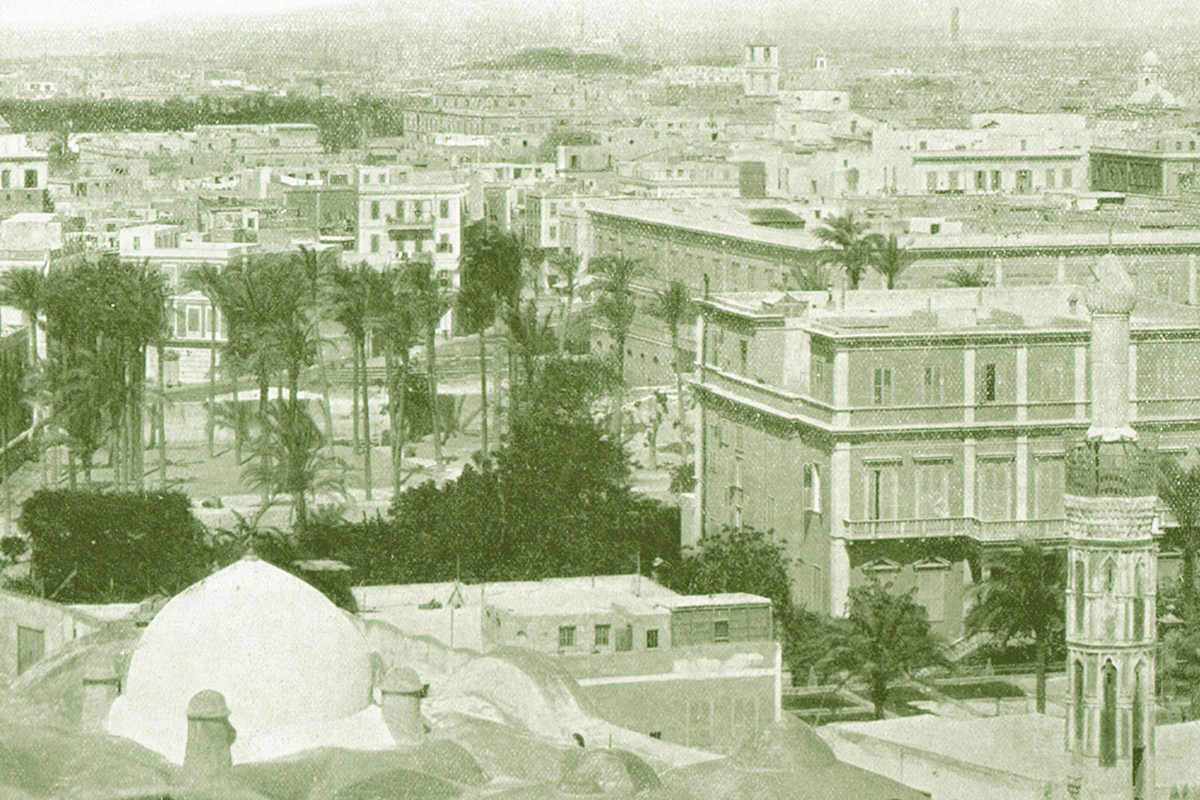André Aciman is a thoroughly Jewish storyteller. While many readers know him for his fiction, his 1994 memoir “Out of Egypt” is absolutely worth your time. Aciman is a prominent figure in contemporary Jewish fiction; to know and celebrate his uniquely Jewish origins is to further honor his body of work and his place in Jewish literature. After all, passing stories down from generation to generation is what Judaism is all about.
“Out of Egypt” chronicles Aciman’s Sephardic family and their time in Alexandria, Egypt. Since I’m not normally a nonfiction person, I was a bit skeptical at first, but Aciman’s memoir quickly turned into one of my favorite reads of last year. It’s a deeply moving, witty and fascinating true story, written like a conversation with your wise older Jewish uncle, that had me reexamining the idea of leaving within my own history.
You may not recognize André Aciman’s name on its own, and that is certainly reason enough to read “Out of Egypt.” Aciman is an Egyptian American author who has written several novels, including “Enigma Variations,” “Eight White Nights” and, famously, “Call Me By Your Name.” The Jewish queerness of “Call Me By Your Name” was clear in the 2017 film adaptation from director Luca Guadagnino. Aciman is responsible for one of the biggest queer Jewish stories to hit the mainstream in quite some time, and I for one cannot thank him enough for helping catapult my dear Timothée Chalamet to the superstardom he enjoys today.
Though Aciman is mostly known for his fiction, “Out of Egypt” is the first book he ever published. He shares the story of his Sephardic family in Alexandria and his early childhood before the family fled the country due to increasing antisemitism. It’s also filled with descriptions of traditional Sephardic dishes, quarrels between uncles and grandparents that invoke any typical Shabbat dinner around the world, and the kinds of old-school Jewish proverbs that make you want to call your grandparents. For example, Aciman begins the memoir by introducing his great-uncle Vili, who lives by the mantra “Siamo o non siamo?”, which translates to “Are we or aren’t we?” in Italian. Vili used the phrase whenever he needed to prove himself or keep his word, or when he or his family needed to remember who they were and what they’ve gone through. I couldn’t help but be reminded of all the resilient Jewish elders who have given me the same tough love.
“Out of Egypt” is a love letter to the Jewish diaspora in its portrayal of a Jewish society that has now practically disappeared. From the 1800s to the 1960s, Alexandria was Egypt’s most cosmopolitan city, home to various languages and cultures. Aciman writes of relatives and family friends from France, Italy, Turkey and countless other places all living in Egypt, speaking French, Spanish, Italian and Ladino. Yet by the end of the book, all these Jews must flee Alexandria; this singular society disappeared with them.
Aciman begins the book by detailing how his relatives got to Alexandria and ends the book with the family’s last Passover seder in Egypt. There is something so hopeful yet so melancholic about Aciman and his family being forced to call a new city home at a moment’s notice over and over. It is particularly poignant when thinking of the story of Exodus: The Biblical story resonates when Aciman’s own Jewish family must escape from Egypt practically overnight. The fact that the story of “Out of Egypt” includes generations of Jews points to the universality of the Jewish experience and how our history goes in circles. When reflecting on his family’s practically overnight departure from Alexandria, Aciman writes, “I had caught myself longing for a city I never knew I loved.” In one sentence, he so perfectly encapsulates the Jewish bittersweetness of leaving: loving and hating a place all at once.
Aciman’s story also resonates with me as a product of constant fleeing. My own great-grandparents were Holocaust survivors who fled three countries in 12 years before finally settling in Mexico City in the 1950s. My parents then left Mexico in the ‘90s to move to Miami, where my siblings and I were born. Most of my family members — including myself — have multiple nationalities, and we still have distant relatives in the countries my great-grandparents left behind. Like Aciman, I understand firsthand what it’s like to simultaneously belong everywhere and nowhere. I feel his hesitancy about planting your roots in the ground because you might have to pull them back out at any moment. I’ve spent my whole life hearing about “the old country” or “the old city” from relatives all referring to a different place — at this rate, who knows where my future children will grow up. Like Aciman, leaving is in my family’s blood, and I’m sure the same goes for so many Jewish bloodlines around the world.
It’s been almost 30 years since “Out of Egypt” was published, and it’s time for younger generations of readers to give it a go. Aciman has had a surge in popularity with “Call Me By Your Name,” and the themes in “Out of Egypt” — growing up, belonging, and navigating your feelings for the city you call home — are just as relevant today as they were three decades ago. Plus, it’s just a beautiful book, with vibrant characters and descriptions so visceral I could almost feel the breeze on the Alexandria beaches Aciman so clearly loved. “Out of Egypt” showcases a Jewish writer at the top of his craft, telling a Jewish story that deserves to be a classic.
Late Take is a series on Alma where we revisit Jewish pop culture of the past for no reason, other than the fact that we can’t stop thinking about it?? If you have a pitch for this column, please e-mail submissions@heyalma.com with “Late Take” in the subject line.




